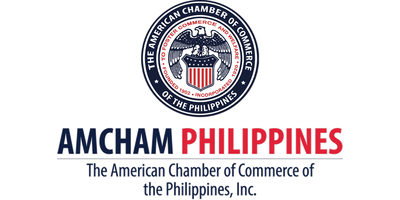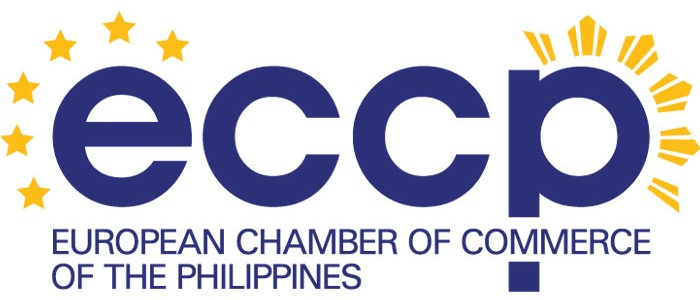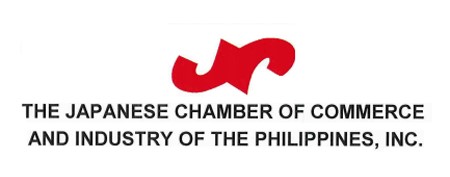Because of its prime location and highly proficient English-speaking populace, the Philippines has emerged as a desirable investment point for global businesses. It’s important to comprehend the essential information and prerequisites for operating a company in this dynamic Southeast Asian country, regardless of whether you’re thinking about establishing a limited liability company, subsidiary office, or corporate enterprise. We’ll go over all the important details in the following article if you’re a foreign investor trying to establish a Foreign-owned Business in the Philippines.

What is a Foreign-owned Business in the Philippines?
The right to ownership of part of an entity’s assets by those who aren’t citizens of a given nation or by firms with headquarters that are located in that state is referred to as foreign ownership.
Are Foreign-owned Businesses Legal in the Philippines?
The Philippine Statistics Authority (PSA) announced that the ongoing foreign investments in the country have reached a record high of PHP 27.30 billion as of the third quarter of 2023. Although the fact that foreign investments contribute to the Philippine economy, they have limits and are not ultimate. Particular occupations and businesses prohibit or regulate foreign equity or involvement. These constraints can be found in the Philippine Constitution as well as numerous legislation.
How Can Foreign Investors Establish a Business in the Philippines?
Investors must officially register their firms with the Securities and Exchange Commission (SEC) for the company type, regardless of corporation, partnership, subsidiary office, or corporate enterprise, in order to take advantage of these privileges. In addition, sole proprietorships can be registered with the Department of Trade and Industry’s (DTI) Bureau of Trade Regulation and Consumer Affairs.
What are the Regulatory Laws for Foreign-owned Businesses in the Philippines?
Under the Philippine Corporation Code, the Foreign Investment Act, R.A. R.A. 7042 as amended by R.A., Foreign investment in the nation has been permitted under 8170, and foreign ownership firms have since been properly recognized.
Restrictions on Foreign Businesses in the Philippines
The Foreign Investment Act of 1991 (FIA) has two negative lists, often known as the “Foreign Investment Negative List,” which describe foreign investments that are prohibited or restricted by the constitution and particular legislation. Negative List A & Foreign ownership is restricted for security, defense, harm to health and morality, and the protection of small and medium-sized businesses.
List A
No Foreign Equity
- Media outlets, excluding record labels and online companies
- Employment of professions, unless otherwise authorized by law and according to the guidelines set forth thereon
- Occupations in which foreigners are not permitted to work in the Philippines unless equivalence is authorized under applicable regulations
- Administrative employment in occupations restricted by applicable regulations regarding foreign equity
- Retail businesses having less than ₱25,000,000.00 in paid-up capital
- Cooperatives, with the exception of investments made by former Philippine citizens by birth
- Establishment and management of watchman, security guard, and private investigator firms
- Minimal-scale mining
- Small-scale use of biodiversity in water bodies such as rivers, lakes, bays, and lagoons, as well as the usage of marine resources in territorial seas, restricted maritime zones, and offshore islands
- Cockpit possession, use, and administration
- Production, maintenance, transportation, and storage of explosives
- production, maintenance, shipment, or storage of radioactive, chemical-based, and biological materials
- Manufacturing of pyrotechnics, including firecrackers
Up to 40% Foreign Equity
- Procurement of construction projects in compliance with the RA’s Implementing Rules and Regulations
- Natural assets discovery, cultivation, and usage
- Ownership of privately owned land, with the exception of natural-born citizens who are no longer citizens of the Philippines and who are able to legally enter into contracts under Philippine law
- Managing public sector operations
- In recognition of foreign diplomatic workers, their households, and additional interim foreign residents, as well as for immediate high-level instruction that does not constitute a component of the official school system as defined in Section 20 of Batas Pambansa (BP) No. 232 (1982)
Up to 30% Foreign Equity
- Advertising
Up to 25% Foreign Equity
- Independent hiring, both for domestic or foreign work
- Binding agreements for buildings connected to security
List B
Up to 40% Foreign Equity
- Production, maintenance, transportation, along with shipment of items or components necessitating authorization from the Philippine National Police (PNP)
- Manufacturing and sale of harmful pharmaceuticals
- Saunas and steam rooms, massage parlors, and similar establishments are subject to legal regulations due to potential hazards to public welfare and ethics, with the exception of health clubs
- All types of gaming, with the exception of those that fall within the Philippine Amusement and Gaming Corporation (PAGCOR) contracts for investment
- Domestic market businesses having less than US$200,000 in paid-in equity capital
- Micro and small-scale domestic markets include the following:
- The Department of Science and Technology’s definition of advanced technology (DOST)
- Approved by the Department of Trade Industry, or DOST, as a startup or startup facilitator employing a minimum of fifty direct workers whose paid-in equity capital is less than $100,000 USD

Are Domestic Corporations (Subsidiaries) Permitted to be Foreign-Owned in the Philippines?
A Domestic Market Enterprise may be owned by foreigners to the extent of above forty percent and as high as 100 percent, provided that the capital invested is at least USD 200,000. A capital investment of not more than USD 100,000 may be permitted if there are at least 50 direct workers or if innovative technology is used (R.A. 7042 as modified by R.A. 8179).
A legally established company is deemed to be of Philippine nationality if at least 60% of its ownership is Filipino; if a greater percentage of its ownership is foreign, it is classified as a foreign-owned domestic corporation.
Can Retail Investments be Foreign-owned in the Philippines?
It is necessary to reach the specified capital requirements in order to conduct retail business with 100% foreign ownership. If a retail trade company in the Philippines has a paid-up capital of USD 2,500,000 or more, it can be held 100% by a foreign entity. Should the business focus on upscale luxury goods, each store must have a minimum of USD 250,000 in paid-up capital.
Is Foreign Ownership Applicable to Export Entreprises in the Philippines?
A company that exports at least 60% of its products is referred to as an export-oriented enterprise. Export Business Enterprises are eligible to apply to the SEC for relief from the USD 200,000 invested capital requirement, even if they are 100% foreign-owned. Call centers, communications outsourcing, back office, information technology, web design and development, and KPO are all categorized as Philippines export firms.
Minimum Capital Requirements for Foreign-owned Businesses in the Philippines
The amount of funding needed to establish a business in the Philippines varies for both domestic and foreign companies, based on the kind of company they intend to run and the proportion of foreign shareholding they are interested in acquiring.
In the Philippines, a business’s initial invested capital is generally required to be at least ₱5,000. Businesses must pay a minimum of 25% of the capital stock that has been subscribed, with a minimum payment of ₱5,000. According to the legislation, at least 25% of the authorized shares of the business being constituted must be fully paid for in whole at the date of formation.
Tax Reform Programs for Foreign-owned Businesses in the Philippines
The Philippines has been actively modernizing its tax code to give both domestic and international businesses a more straightforward and effective tax structure. Various tax reform measures are introduced by the Corporate Tax Reform Program (CTRP) in an effort to increase economic activity and investment in the entire country.
- Tax Reform for Acceleration and Inclusion (TRAIN) Law
- Corporate Recovery and Tax Incentives for Enterprises (CREATE) Act
- Real Property Valuation Reform
- Passive Income and Financial Intermediary Taxation Act (PIFITA)
Organizations in the Philippines for Foreign Investments
AMCHAM Philippines

Founded in Manila in 1902, the American Chamber of Commerce of the Philippines, Inc. (AmCham) is a private, autonomous, non-profit organization. By enabling members to actively pursue their long-term goals and support the social and financial development of the Philippines, the Chamber works to advance the best interests of American and Philippine businesses.
ANZCHAM Philippines

The Chamber strives to grow into a very strong corporation that actively encourages and promotes trade between the Philippines, Australia, and New Zealand. Through continuous communication with affiliated state and public sector bodies and supporters, it aspires to establish and preserve a solid alliance and cooperative relationship with individuals and sectors that play a pivotal role in the expansion and advancement of commerce, enterprises, and the economy.
ECCP

A bilateral foreign chamber, the European Chamber of Commerce of the Philippines (ECCP) advances European interests in the Philippines and inversely. This organization works to represent the interests of its affiliates in legislative actions, government regulations, and commercial and financial affairs. Through trade matching operations with buyers, vendors, and partners, the ECCP also offers a range of assistance to help European firms get started in the Philippines.
KCCP

The Korean Chamber of Commerce Philippines, Inc. (KCCP) is a private, non-stock organization comprising multinational firms, trade organizations, individual business people, and individuals in the Philippines who do business with Korean firms and organizations. Participation in the Korean Chamber of Commerce Philippines, Inc. would allow an individual or organization to bring together the work of the leaders of the two nations committed to the Philippines’ sustainable economic growth and development.
JCCI

The Japan Chamber of Commerce and Industry (JCCI) is a global network of thorough local business associations comprised of members from over 1.23 million affiliated companies ranging from big and medium-sized enterprises to small firms and independent contractors. Their mission is to promote the full blooming of individual imagination by assisting member organizations, their workers, and all communities in continuously fostering daring entrepreneurship while capitalizing on their own distinctive traits.

With its advantages to business legislation, tax reform policies, and tax incentives from numerous government organizations, the Philippines is a great place for international companies looking to join the market. Extensive expertise and adherence are essential, ranging from knowing foreign ownership limitations and capital needs to registering your firm with the relevant authorities. Understanding the customs and laws of the area is crucial, but as you do, you may benefit from the low startup costs, the warmth of the Filipino people, and the economical nature of gaining access to competent workers.









